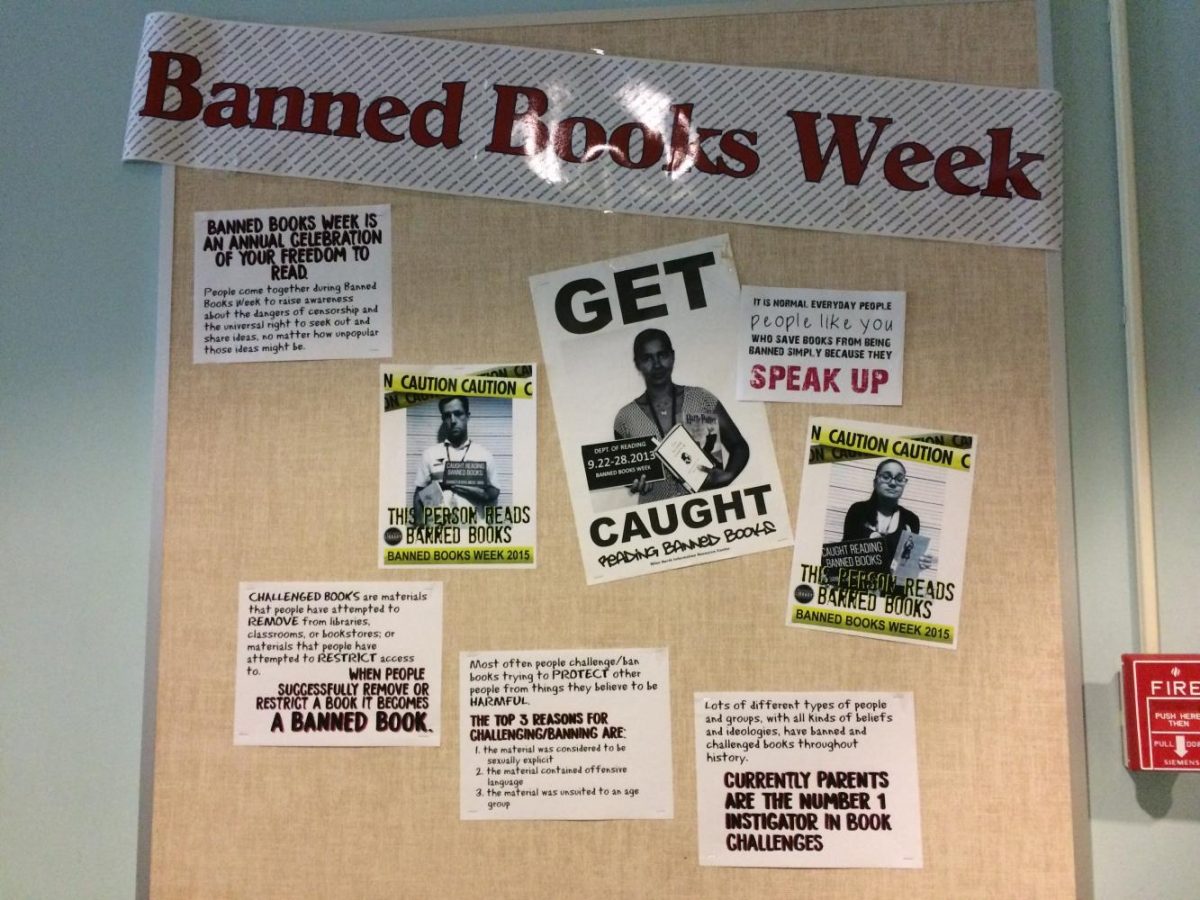Banned books are required reading
September 24, 2017
We all read books for English class. But did you know that some of the books we read are banned in the state of Illinois? You may be wondering, if they’re restricted by the state, how are we still reading them in school?
Niles North celebrates banned book week on Sept. 23-28 with events in the library. Books are banned for any number of reasons; language, in the case of Beloved; violence, in books such as The Lord of the Flies; and racial stereotypes, for The Adventures of Huckleberry Finn. All of these books continue to be in the curriculum here because the teachers have weighed the pros and cons of the contents, and decided that each of the books they teach lead to a deeper understanding or questioning of the world, and that impact outweighs the reasons they were banned.
Barbara Hoff, teacher, explains why she continues to teach such books. “Banned books are seen as something students can’t handle, because it’s too dark or violent. Sometimes…we underestimate what students already have been exposed to, and so we think they can’t handle that kind of stuff.” Hoff added, “But if it’s a book that handles things in ways that educate us about important things, that’s a way of helping us understand how to make the world a better place. If we don’t learn about things that are dark and sad, and why those things exist, how do we fix that?”
Teacher Nils Peterson agrees and sheds some light on his reasoning. “As an educator, I should look at the content of a book and determine why it would have been banned, and what is there to learn from it, and I should make a responsible and educated choice about whether or not it should be presented.” Peterson teaches a number of banned books in his sophomore English class, including 1984 by George Orwell and The Lord of the Flies by William Golding.
Peterson goes on to explain why he specifically teaches The Lord of the Flies, a book banned for its violent content. “I asked myself, does the value of the ideas and the artistry of the book, and the thinking it would advance, outweigh the violence that the book contains? And for Lord of the Flies, it does.”
“Both (Lord of the Flies and Beloved) teach us important lessons about ourselves and our history,” John McCreary, senior, added. “Just because people swear or (there is) disturbing imagery, that doesn’t mean…we should stop reading about it.” McCreary read Lord of the Flies in his sophomore year and Beloved in his junior year. He feels that both teachers were justified in teaching the books in class.
Generally, the teachers look at the potential impact of the book on students when deciding to use it in school or not. “Reading (these books in school)…is a way of thinking about these things in a meaningful way, in an educational context, and that’s really beneficial.” Hoff commented. When students are exposed to the content in books like Beloved, which is about slavery, it’s easier to understand in a classroom context.


